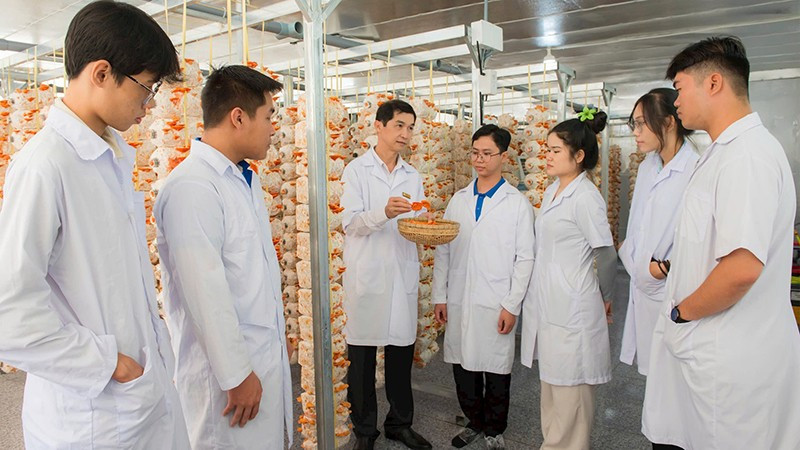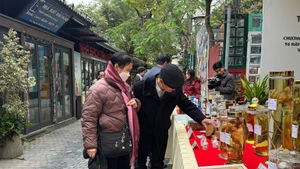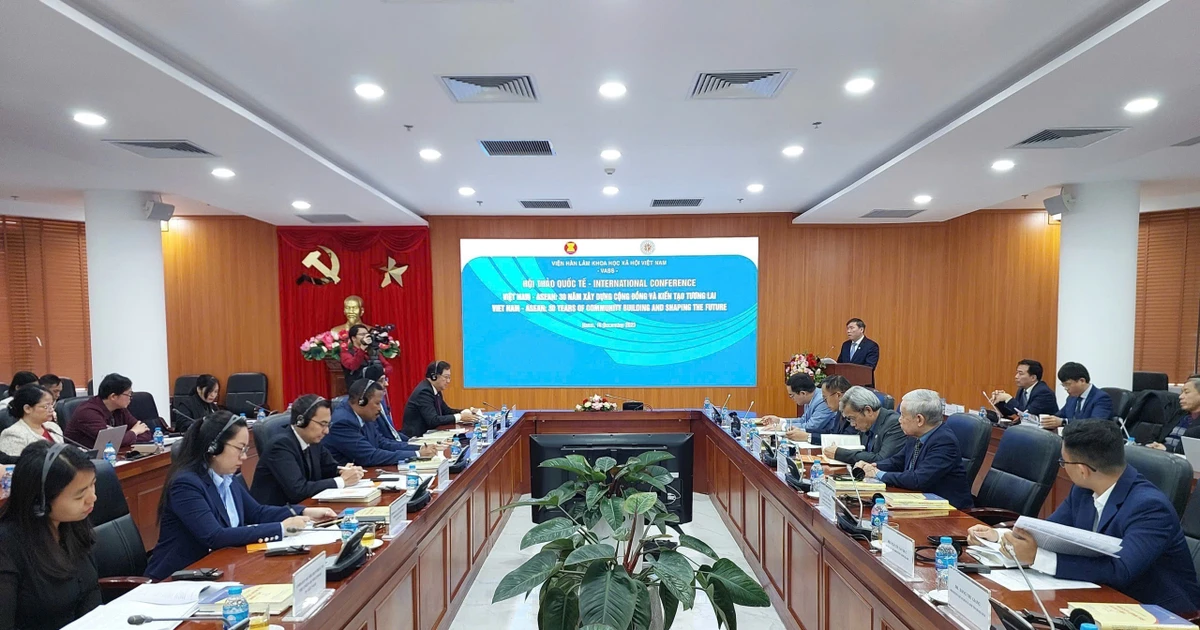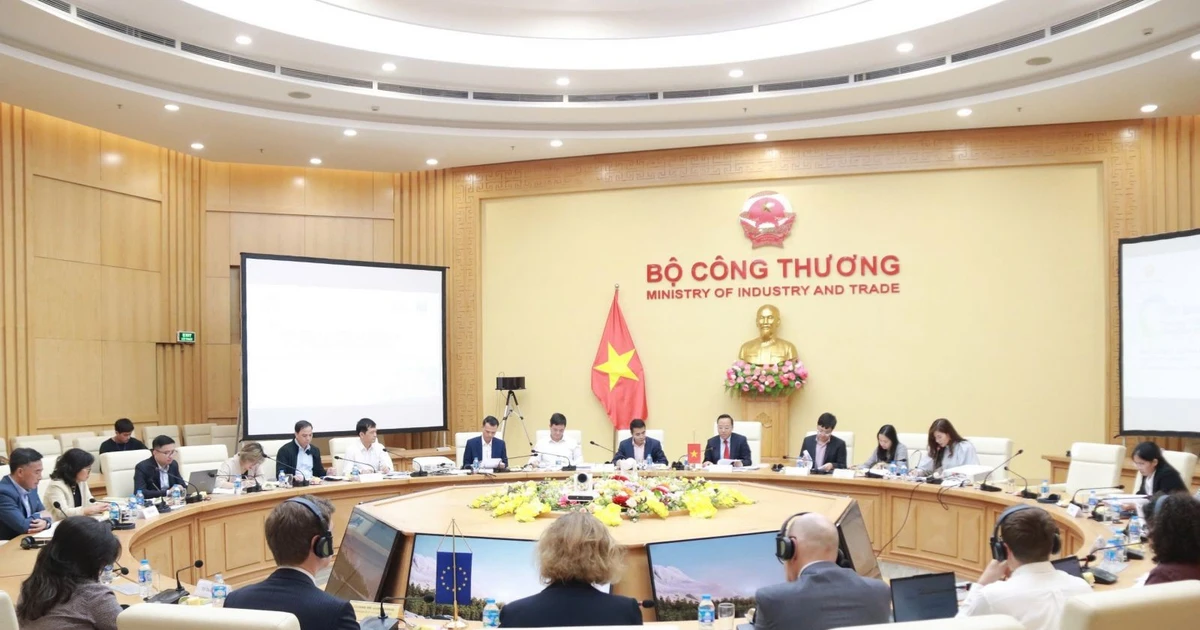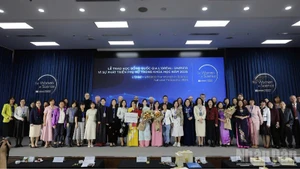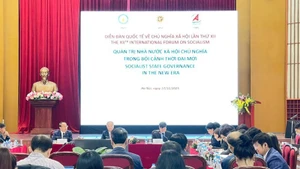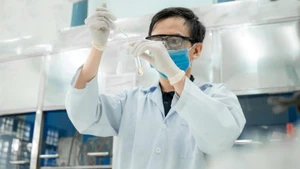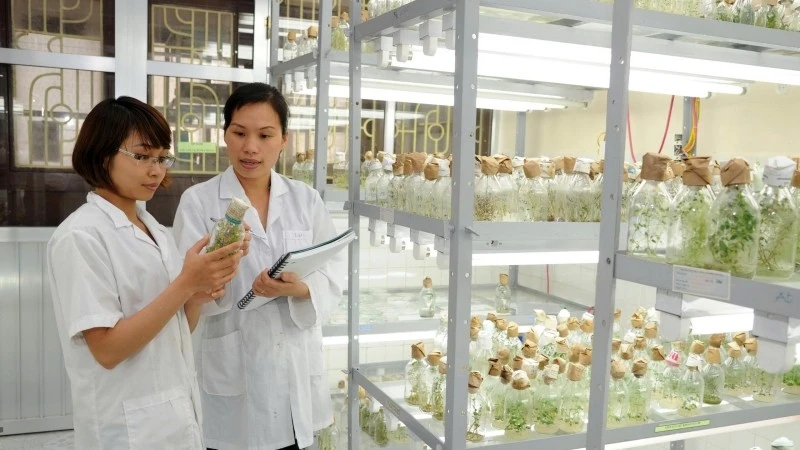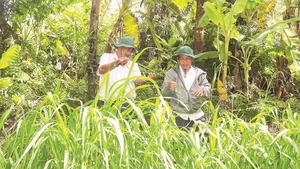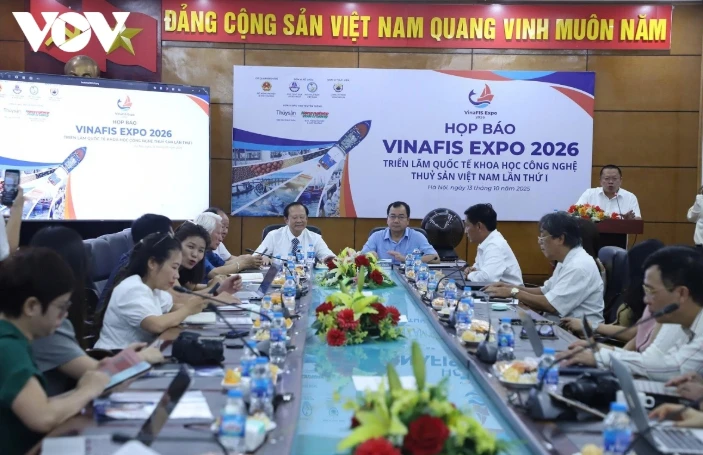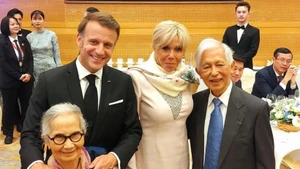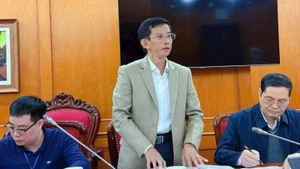Future human resources
We visited a 150m² medicinal mushroom cultivation house at Dong Thap University.
Dr Tran Duc Tuong, a lecturer in Biotechnology at the Faculty of Technology and Engineering, was busy with nearly 20 students hanging 3,600 red reishi mushroom embryos.
“Whenever we hang the mushroom embryos, my classmates and I concentrate to ensure balance and aesthetics. Through these activities, we gain the opportunity to study the growth process of red reishi mushroom and other types of mushrooms,” shared Pham Thi Ngoc Anh, a first-year student in Biotechnology.
Ngoc Anh added that she was quite surprised that, even as a first-year student, she and many classmates were already given opportunities for scientific research and practical experience to support their studies.
The red reishi mushroom cultivation house is part of the agricultural practice area at Dong Thap University. It serves teaching and research purposes and is also where students can directly practise modern, bio-safe mushroom cultivation, care, and harvesting techniques.
Dr Tran Duc Tuong said that the red reishi mushroom project at the university is currently a start-up initiative. The project aims to effectively utilise agricultural by-products from the Mekong Delta region (such as corn cobs and rice husks) to cultivate red reishi mushroom – a natural product with high medicinal and economic value, meeting verified quality standards.
The project originated from the scientific research “Studying the composition of local substrates for red reishi mushroom cultivation” by Dr Tran Duc Tuong and his research team.
From this project, lecturers and students at Dong Thap University have developed numerous research topics and published various studies on red reishi mushrooms in reputable scientific journals. They have also received many awards and commendations at the provincial, ministerial, and central levels.
Currently, the project is developing towards completing the production process using IoT technology and creating value-added products from the mushroom. It has also stimulated the creative research spirit among students in related fields.
“We always provide opportunities for students to access knowledge early. Lecturers carry out multiple scientific topics for students to experience real-life practice. Those with strong skills are selected as research technicians, encouraging them to undertake grassroots-level research,” Dr Tran Duc Tuong explained.
At present, Dong Thap University has 143 students studying agriculture, natural resources, and environmental majors. Over the past five years, lecturers and students from the Faculty of Agriculture, Natural Resources, and Environment have implemented 24 scientific research projects and published 108 scientific papers, 45 of which appeared in international journals.
Associate Professor Dr Ho Van Thong, Rector of Dong Thap University, said the university prioritises investment in modern facilities for research and practice, such as specialised laboratories, greenhouses, mesh houses, vegetable and aquaculture areas, and high-tech mushroom farms. A wide network of partnerships with institutes, universities, and enterprises has opened up many internship and employment opportunities for students, laying a strong foundation for a future high-quality agricultural workforce.
Representatives of the two units signed a plan to coordinate scientific and technological activities.
To create high-tech agricultural human resources, Dong Thap Province has enabled specialised staff from various departments to attend scientific and technological conferences, short-term training, and workshops at institutions both domestically and abroad. The province also collaborates on postgraduate training abroad in development-priority areas.
According to Huynh Tat Dat, Deputy Director of the Department of Agriculture and Environment of Dong Thap, the training programmes are diverse and meet the practical needs of local people, helping them access new technologies and apply advanced production models. Some of these programmes have improved vocational skills and knowledge of organic farming and agricultural economics.
Collaboration for development
Developing a high-tech agricultural workforce is key for Dong Thap to shift toward a modern, sustainable, and competitive agricultural sector. This requires collaboration between authorities, training institutions, enterprises, and local people in education and efficient use of human resources.
Implementing Resolution No. 57 of the Politburo on breakthroughs in science, technology, innovation, and digital transformation, Dong Thap Provincial Party Committee places great emphasis on high-tech agricultural human resource training.
Driven by the aspiration to develop such a workforce, Dong Thap Province has organised many workshops and meetings with universities and businesses related to training and start-up projects. Recently, the province has expressed its desire to cooperate concretely in science, technology, digital transformation, and innovation with Vietnam National University, Ho Chi Minh City.
Associate Professor Dr Vu Hai Quan, Director of Vietnam National University, Ho Chi Minh City, assessed that Dong Thap is the second locality, after Ho Chi Minh City, to cooperate in implementing Resolution 57.
Developing high-tech agricultural human resources is the key for Dong Thap Province to transform into modern, sustainable and competitive agriculture. This requires the cooperation of the government, training institutions, businesses and people in training and effectively using human resources.
Ho Chi Minh City National University has carefully studied the province's action program as well as compared it with the Mekong Delta provinces and some Southeast provinces. Through the research, it was found that the National University and Dong Thap University need to organise digital literacy to create a basic knowledge of digital technology for the province's human resources.
Quan proposed that Dong Thap select a business to partner with the university to develop a joint agricultural research programme on nature conservation. This initiative, especially with systematic investment and clear product orientation, could lead to breakthroughs in high-tech agriculture. It would become a pioneering model combining the “three pillars”: enterprises – universities – and the government in implementing Resolution 57 in the Mekong Delta.
Professor Dr Tran Linh Thuoc, Chair of the Scientific and Training Council of Vietnam National University, Ho Chi Minh City, noted that Dong Thap has built high-tech agricultural zones but lacks basic research centres to master seed development.
He suggested the province either build new centres or collaborate with institutions such as Dong Thap University, the Research Institute for Aquaculture II, and Vietnam National University, Ho Chi Minh City to create a basic research centre for gene editing and molecular genetics to incubate and produce seeds. This centre would provide standardised seeds to production units and take on the task of genetic resource conservation for plant and animal development.
Associate Professor Dr Ho Van Thong, Rector of Dong Thap University, said the school is strengthening cooperation with enterprises and research institutes to organise internships, transfer technology, and support students in implementing start-up ideas.
For Dong Thap Province, training human resources and attracting investment in high-tech agriculture go hand in hand. Therefore, Professor Dr Mai Thanh Phong, Rector of the University of Technology – Vietnam National University, Ho Chi Minh City, suggested that the province should develop policies to create technological infrastructure and scientific potential instead of focusing resources on building basic research centres.
The province needs to develop policies to create technological infrastructure to attract businesses. In addition, there needs to be policies to attract talent, including experts and scientists in the agricultural sector. Attracting talent is not only limited to the public sector but also to the private sector.
According to Huynh Tat Dat, in the future, Dong Thap will enhance postgraduate training through cooperation with domestic and international universities and research institutes to improve staff quality. It will also build cooperative models between high-tech enterprises and farmers to promote technology transfer and develop smart, sustainable agricultural models. Additionally, short-term vocational training courses will be organised, particularly in areas applying advanced technologies such as organic agricultural production, water-saving irrigation systems, and automation in agriculture.
